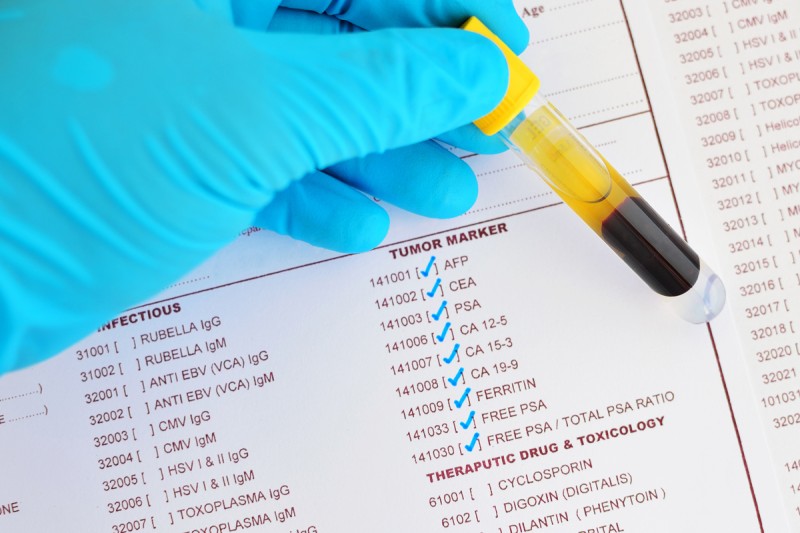
Active surveillance of prostate cancer is being increasingly utilized for men with low-risk cancer. But some men with potentially life-threatening cancers are being inadvertently enrolled in active surveillance programs, driving the need for more-accurate decision-making tools.
The 4Kscore test, developed by researchers at Memorial Sloan Kettering (MSK), is one such tool. For men with elevated prostate-specific antigen (PSA) the 4Kscore has an established role in identifying those at a low risk of harboring a high-grade (Gleason 7 or higher) cancer, enabling them to safely postpone or avoid a biopsy. (1)
Criteria to Enroll in Active Surveillance
While active surveillance results in fewer patients being treated with unnecessary radiation, surgery, or hormone therapy, the criteria used to decide which patients to enroll has been particularly problematic and controversial. Questions remain on how best to expand inclusion beyond typical men with very low-risk disease. We now know that intermediate-risk tumors (Gleason 7) are more likely to metastasize on active surveillance than initially expected. (2), (3) Between these groups (very low risk and intermediate risk) is a large group of men with high-volume (more than two cores), low-grade (Gleason 6) cancers for whom the decision on immediate treatment or active surveillance is particularly difficult. The 4Kscore can be helpful in predicting the risk that these patients harbor a high-grade cancer (Gleason 7 or higher). (4)
Recent Active Surveillance Trial Results
A recently published update (2) to the Prostate Intervention Versus Observation Trial, which has been tracking outcomes for 731 men randomly assigned to radical prostatectomy or observation for nearly 20 years, adds to the growing body of evidence about the benefits of active surveillance. Overall, those assigned to prostatectomy had a similar risk of death from any cause or from prostate cancer as the observation group. However, for men with intermediate-risk cancers, surgery led to 14.5 percent fewer deaths from all causes than observation. (2)
The 4Kscore Test
At MSK, we regularly use the 4Kscore test for men with an elevated PSA to more confidently decide whether a biopsy is necessary. The 4Kscore algorithm incorporates four protein biomarkers in blood, PSA, free PSA, intact PSA, and human kallikrein 2, along with age, DRE findings, and history of prior biopsy results. This result provides the probability that a patient has a Gleason 7 or higher prostate cancer.
The accuracy of the 4Kscore test in predicting a Gleason 7 or higher prostate cancer was evaluated in a large prospective US clinical trial. (1) The study examined blood test results for 1,012 men scheduled for a prostate biopsy because of abnormal PSA or suspicious clinical findings. The study demonstrated that 30 to 58 percent of biopsies could have been eliminated if the 4Kscore test had been used as a diagnostic tool prior to the biopsy. Moreover, there would have been a delay in diagnosis in only 1 to 5 percent of Gleason 7 or higher prostate cancers. (1) The 4Kscore test demonstrated higher discrimination and net benefit than the widely used Prostate Cancer Prevention Trial Risk Calculator 2.0. (5)
If a man with a low-risk cancer is enrolled in active surveillance, the 4Kscore test may also prove helpful in determining the necessity and timing of subsequent biopsies. (6)
Future Advances in Prostate Cancer Risk Assessment
New technologies such as liquid biopsies that can measure tumor cells in the circulation with a high degree of accuracy are in development. Researchers at MSK are currently evaluating how liquid biopsies can better characterize prostate cancer and its response to treatment and how this technology can help guide the best choices for clinical care.
MSK is a member of the Blood Profiling Atlas in Cancer, collaborating with more than 20 private and public organizations to pool clinical data, protocols, and expertise to expedite the development of liquid biopsies.
Disclosure: Dr. Scardino has a financial interest in OPKO, the company which licensed the 4K score test for commercial use.